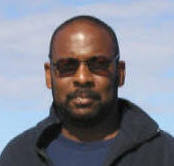Last week, I
blogged about neuroscientists' concerns about fMRI brain imaging. Critics say its scientific reliability and validity is far from established, and that if it was introduced in court, its colorful graphics might mislead jurors and judges and derail justice.
Just days later, the good folks over at the
Stanford Center for Law and the Biosciences have learned of a pending case in California in which the "No Lie MRI" (I kid you not!) may be introduced in court to establish that a parent did not molest his child.
The case is a child protection hearing in juvenile court, so the records are sealed. The issue is whether a child should be removed from the home due to alleged sexual abuse by a parent, explains blogger
Emily Murphy, a Stanford Law School fellow.

According to Murphy, a hearing is imminent on whether the fMri-based "truth verification" technique will be allowed in court. Under California's Kelly-Frye standard for evidence admissibility (which is different from the federal Daubert test), a scientific technique cannot be introduced in court unless it is generally accepted within "the relevant scientific community." The method's reliability must also be established, generally by a properly qualified expert.
If you read my blog post last week, you may be wondering how a novel technique like the fMRI could possibly meet that "general acceptance" standard.
Well, according to Ms. Murphy, the defense will argue that the "relevant scientific community" is a narrow group consisting only of scientists who research and develop fMRI-based lie detection. Tricky, huh? As Ms. Murphy comments:
Limiting the "relevant community" to only those who research and develop fMRI based lie detection is without merit, if only because such a definition precludes effective or sufficient peer-review. Indeed, it is arguable such a narrowly-defined community has a strong incentive to exaggerate its claims of accuracy and overlook unanswered questions for financial gain if such techniques are "legally admissible."
The few practitioners who research and develop fMRI-based deception detection are not the only qualified people to comment on the accuracy and validity of the technique. Statisticians familiar with Bayesian analysis, cognitive neuroscientists familiar with technical and analytical constraints, and researchers working to elucidate the neural basis of memory, decision-making, and social behavior should all make up the "relevant scientific community" for such a complex and as-yet poorly characterized technology. Further, I suspect the community of peer-reviewers that have reviewed the articles being proffered in support of the evidence of fMRI testing on deception is probably a useful proxy for the legally relevant scientific community, and extends well beyond the handful of researchers working directly on fMRI-based deception detection.
As to Murphy's last hope -- that journal peer reviewers could stand in for the legally relevant scientific community -- maybe that would help, and maybe it wouldn't. Remember, as I pointed out in last week's post, researchers at UC San Diego have found that the publishers of leading scientific journals are just as wowed by fMRI technology as everyone else, and they are uncritically promoting studies of questionable statistical merit.
To commercial ventures like
No Lie MRI in California and its competitor,
Cephos Corporation in Massachusetts, profit is the bottom line. Despite the controversy surrounding the reliability and validity of the lie detection technique, they are aggressively marketing the tools to clients and attempting to get them accepted in court.
Indeed, over at New York University's
Scienceline, the president and chief executive of the eight-person start-up Cephos Corporation says he believes it it has a "strong possibility of being introduced as evidence" in court within the next couple of years.
Maybe sooner, depending upon the outcome of this case.
POSTSCRIPT: After opponents to the fMRI's introduction mounted a vigorous opposition and prepared to do battle at an evidentiary hearing, "the proponents of the evidence withdrew their request to have it admitted, thus ending the issue in [the] case," according to a March 25 letter from the San Diego County Counsel's Juvenile Dependency Division. Although fMRI proponents bowed out of this battle, we are sure to see more attempts to prematurely introduce brain scans as evidence in court in the coming months and years.
My previous post, with lots of links to critical research, is HERE. The image, above, is supposedly an excerpt from the actual case report.
 Here's an important new book for you folks who work with sex offenders:
Here's an important new book for you folks who work with sex offenders: 
 Richard G. Wright is a criminal justice professor at Bridgewater State College in Massachusetts and a nationally known expert on sex offender laws.
Richard G. Wright is a criminal justice professor at Bridgewater State College in Massachusetts and a nationally known expert on sex offender laws.






